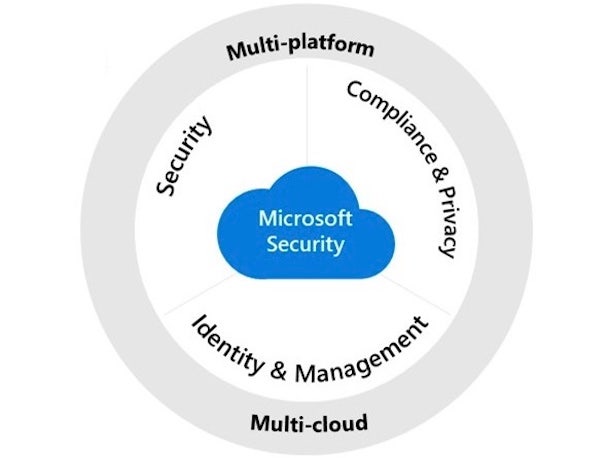Microsoft Says 15,000 Partners Are Driving Its $20 Billion Security Business
With its security business continuing to surge, Microsoft is ‘taking share across all major categories we serve’ in the cybersecurity market, CEO Satya Nadella said this week.

As Microsoft has evolved into a juggernaut of the cybersecurity industry in recent years, it’s clearly had some help.
In a blog post Wednesday, one of Microsoft’s top cybersecurity executives, Vasu Jakkal, pointed out that the company’s security business is surging thanks in part to the work of a lot of partners — more than 15,000 at present. On Tuesday, Microsoft CEO Satya Nadella disclosed on the company’s quarterly earnings call that its security business revenue passed the $20 billion mark during the prior 12 months.
That’s up from $15 billion — the size of the annual Microsoft security business as disclosed in January 2022 — and $10 billion in January 2021.
[Related: Microsoft Adds Two New Security Products To Its Defender Suite]
While Microsoft CFO Amy Hood on Tuesday blamed a “slowdown in growth of new business” for constraining the company’s revenue in several businesses during its fiscal second quarter, which ended Dec. 31, demand for the Microsoft security portfolio is undoubtedly a bright spot.
And partners deserve their share of the credit, Jakkal noted.
Amid surpassing the $20 billion revenue mark with the Microsoft security business, “I’m grateful to all our customers and partners who have been on this journey with us, for trusting us to protect them, for partnering with us in defining great security, and for making this milestone possible,” said Jakkal, who is corporate vice president for security, compliance, identity and management at Microsoft, in the blog post.
Currently, Jakkal said, “we now have more than 15,000 partners working with us across our security ecosystem helping to bring better solutions and more choices to market.”
It doesn’t appear that Microsoft had shared a comparable figure for the size of its security partner community a year ago. CRN has reached out to Microsoft to ask for a comparison figure.
In terms of customer growth, Microsoft now has 860,000 security customers in all, up from 650,000 as of early 2022 and 400,000 as of early 2021.
One Microsoft security offering that continues to grow in popularity is Sentinel, the company’s cloud-native SIEM (security information and event management) platform, which now has more than 20,000 customers, up from 15,000 a year ago.
Sentinel launched in 2019, and one of its early partners was Netrix, No. 190 on the 2022 CRN Solution Provider 500, said Netrix Global CEO Russell Reeder. At the time, “people called us crazy for partnering with Microsoft on security,” Reeder said.
“It’s been great to see their success with Sentinel,” he said, calling Microsoft one of Netrix’s top partners.
Microsoft has organized its security portfolio — which it says spans more than 50 product categories overall — into six product lines.
The Defender portfolio includes Microsoft 365 Defender — the company’s extended detection and response (XDR) platform for securing endpoints, email, applications, identities and data — as well as Defender solutions for endpoint, cloud, IoT, vulnerability management, threat intelligence, DevOps and external attack surface management.
Microsoft’s other product lines are Sentinel; Entra identity management and security (which includes Azure Active Directory); Purview data protection; Priva privacy risk management; and Intune endpoint management.
In the earnings call Tuesday, Nadella contended that Microsoft is the “only company” that offers “integrated end-to-end tools spanning identity, security, compliance, device management and privacy, informed and trained on over 65 trillion signals each day.”
Microsoft is also “taking share across all major categories we serve,” and customers are choosing to consolidate their security tools with Microsoft “in order to reduce risk, complexity and cost,” he said. “The number of organizations with four or more workloads increased over 40 percent year over year.”
During the second half of 2022, Microsoft rolled out more than 300 security product enhancements, Jakkal said in the blog post Wednesday. The company, she said, has “worked to be nimble, to listen attentively to honest feedback from our customers, and to implement these changes in products and solutions that are future-proof and secure from the start.”